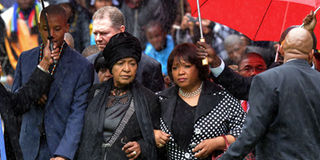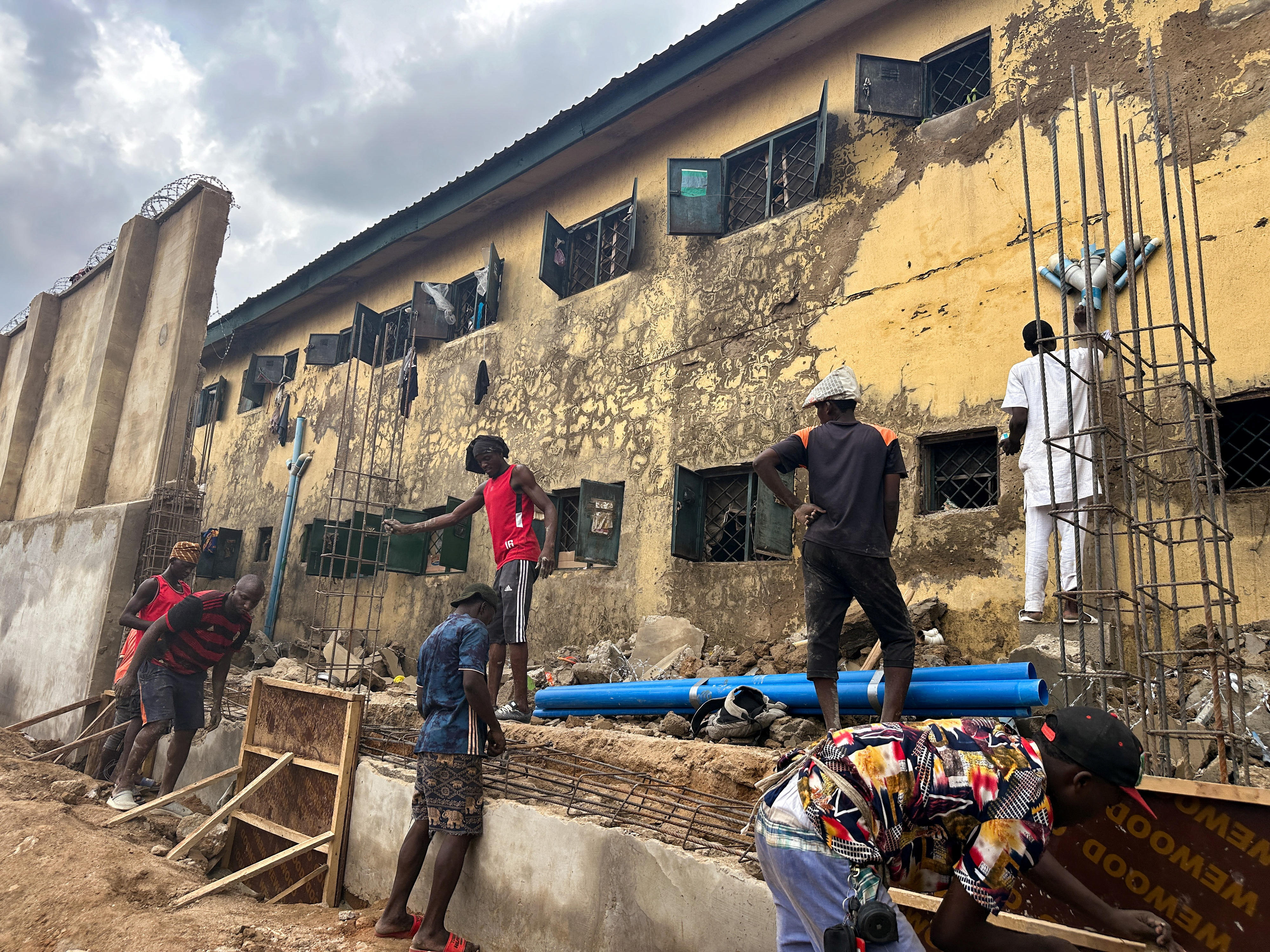Dancing for Mandela in sorrow, joy and pride

( L-R) Nelson Mandela’s grandson Zozuko Dlamini Mandela, second wife Winnie Madikizela Mandela and daughter Zindzi Mandela arrive for the service.
From the train station mourners walked, jogged, sang and chanted through an unusually rain-sodden Johannesburg morning toward the Soweto stadium, determined to pay their respects to Tata Nelson Mandela. Bin-bag ponchos and a sliver of the same unwavering determination that vanquished white rule were all they needed to take this, another step along this reborn country’s long walk to freedom.
“If he was able to stay behind bars for 27 years for us, what is one day, just one rain-drenched day?” asked Musa Mbele.
This was an important day for South Africa. A young and still troubled nation was saying a celebratory goodbye to its hero, its talisman, its president and founding father.
“I’m a born-free. I was born in ‘94,” said 19-year-old engineering student Luyanda with a big smile.
“The first few days I was crying. I’ve been watching everything on TV, documentaries. But today is a day of celebration”, Luyanda said.
With access on a first-come basis, people began gathering before daybreak to secure a seat and join nearly 100 heads of state and government who came to pay tribute to Mandela’s life and legacy at the FNB stadium in Soweto.
Earlier in the day, some 70 kilometers (40 miles) away at the Waterkloof air force base, journalists watched as plane after plane swooped down, bringing in the world leaders, from China, Germany, Brazil, US, Cuba and every corner of the globe.
As the stadium stands filled up, the physical structure seemed to undulate as the crowd stomped their feet and danced as one, like a giant Mexican wave.
“This is once in your life. This is history,” said Noma Kova, 36. “I didn’t want to watch this on TV.”
They sang folk songs, religious songs and above all songs of the struggle which Mandela spearheaded. For many of the tens of thousands who formed a heaving mass inside the venue, the horrors of Soweto, Sharpesville and Boipatong are as raw as the everyday humiliation of passbooks and separate toilets.
“I used to live on the main street of Soweto, and in 1976... I remember we would see students drop on the street like flies while we ran around ducking bullets. The most humiliating time was when I went to apply for a dom (pass) and being asked to strip naked in a room full of people for a so-called medical examination.” said Jabu Maseko, 54, an office equipment business owner.
Many in the stadium were wrapped in the South African flag or yellow-green coloured shawls.




